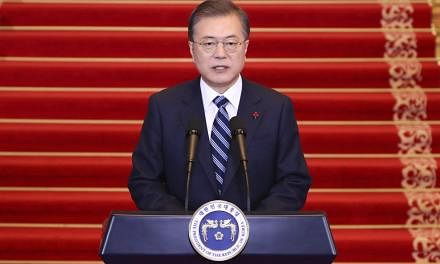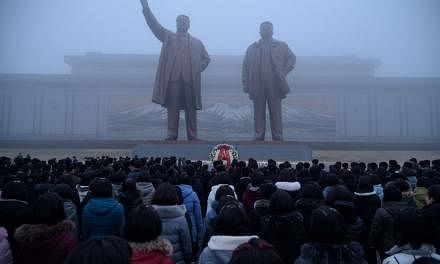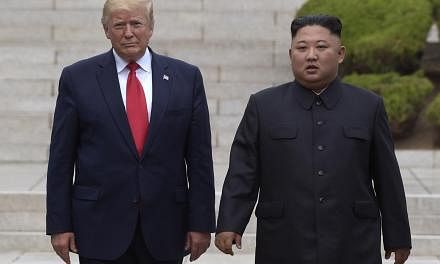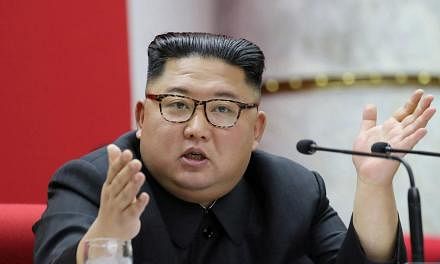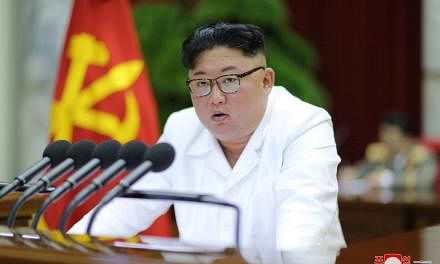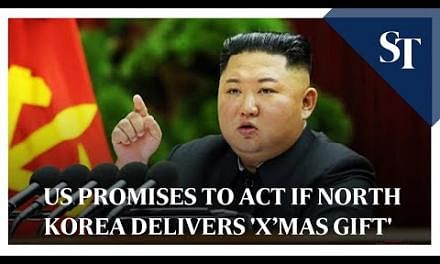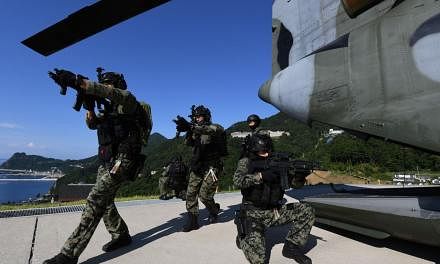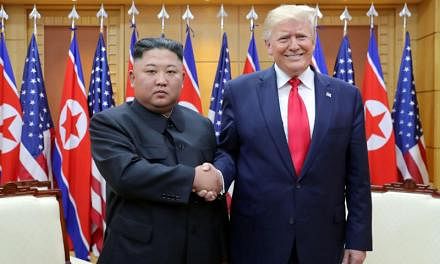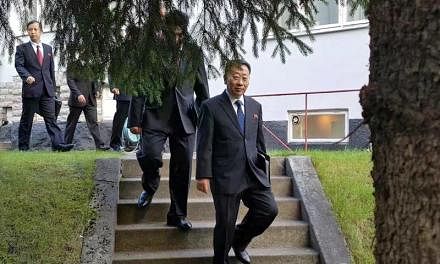When Mr Kim Jong Il accompanied his father, then North Korean leader Kim Il Sung, to Bandung for the 1965 meeting of the Non-Aligned Movement, it is unlikely either imagined a future descendent negotiating with a president of the United States about 1,000km away.
The selection of Singapore as the summit location makes sense for both countries. Through the years, the North Koreans have maintained enduring ties with South-east Asian leaders, including Cambodian King Norodom Sihanouk, and are adept at operating their trade, diplomatic and other networks within the region. US government officials view Singapore as a reliable partner. American corporate leaders know the city-nation as an ideal base for their business pursuits throughout South-east Asia.
For its part, Singapore has maintained a uniquely Singapore model (reminiscent of its Srivijaya ancestors' balanced approach) to international relations - having active relations with two very different countries, while not being shy to express quiet admonishment to either when certain lines are crossed. There are those in the US and North Korea who view the summit as ill-advised and will resist a negotiated resolution to the unresolved conflict. Some in the US executive branch, the Congress, media and think-tanks are so repulsed by the unconventional process leading to the summit, they prefer dissing the prospect of constructive dialogue, without factoring in the consequences of the war alternative.
US President Donald Trump and North Korean Chairman Kim Jong Un, in consultation with South Korean President Moon Jae In, have the historic opportunity to rise above their respective domestic naysayers with agreement on a structure of negotiations intended to endure.
Mr Kim must convince Mr Trump that he is serious about eliminating his country's nuclear weapons programme. However, in return, North Korea will expect a security assurance. This will be a tough sell for the US, given that the North Koreans know that a plethora of persons within the US bureaucracy favour regime change over a negotiated settlement. Plus, how can Mr Trump ensure a security guarantee on the part of future successors in the Oval Office?
Consequently, how will the security guarantee be accomplished? Will this role be filled by China and/or Russia?
North Korean officials will be mistaken if they expect sanctions relief from the US simply because of their willingness to engage in dialogue. If the President were to announce the carrot of lessening sanctions in the absence of clear North Korean action on denuclearisation, the US Congress could very well respond with a new sanctions package.
Any agreement and subsequent long-term system of negotiations will not last unless a third-party mechanism is designed, to monitor and provide regular public reports on the status of agreement implementation. To be credible, this must be comprised of individuals - perhaps Singapore-led - respected by President Trump, US congressional leaders, Chairman Kim and President Moon.
The North Koreans have learnt over the years (and sometimes benefited) from the reality that the US has not maintained a consistent policy towards their country. The US is a democracy and elections have consequences. President George W. Bush, as one example, discontinued the engagement policy of President Bill Clinton. As former White House official Victor Cha long ago noted, the US has not developed an election-proof North Korea policy.
With this in mind, the North Koreans have likely calculated that the prospect of experiencing a consistent US policy fares better early in the first of what could be two, four-year terms of the Trump administration.
However, Mr Kim has his own elements opposed to change - early on in his role as leader, he pivoted from a "military first" focus to an emphasis on the Korean Workers' Party revitalisation and economic change within North Korea; and he has accelerated interaction with South Korea and expressed willingness to meet directly with President Trump.
A positive summit outcome could pave the way for incentives from the international community and its financial system to augment the elements of economic revitalisation of North Korea already under way.
Taking notice of the Trump-Kim exchanges, countless US businesses are now weighing the longer-term prospects for possible entry into North Korea.
During the development of, or after, an agreement on denuclearisation, North Korea and the US could conceivably engage in dialogue on a host of other topics paving the way for expanded interaction, including resolution of US prisoners of war/missing in action (POW/MIA) personnel and human remains issues from the Korean War; and medical, academic, agricultural and other exchanges. Active discussion between US and DPRK (Democratic People's Republic of Korea) military officials on the POW/MIA front could herald new opportunities for cooperation on a range of topics.
US humanitarian non-governmental organisations have been present for decades within North Korea, and a few remain active within the country. Agreement on denuclearisation could lead to lessening of US and United Nations sanctions enabling greater attention to the neediest of North Korean citizens.
A wary US Congress will eventually have its say regarding any US-North Korea agreement, with members watching the summit from the sidelines. More than the US executive branch, Congress has historically touted North Korean human rights as a key issue. While North Korea has made progress regarding the care of handicapped and special needs citizens - welcoming international non-governmental organisation cooperation - members will likely look for the closure of North Korea's gulag system, and reintegration of its former occupants into North Korean society. President Trump, Chairman Kim and President Moon have made history by going down a path never travelled by their predecessors. Each has a domestic crowd of naysayers, either frustrated by the unconventional means of arriving at this point, or who have traditionally preferred a military solution.
In the meantime, the Chinese have expressed dismay about being sidelined - a complaint difficult to fathom given their years leading the six-party talks process.
Washington belatedly came to terms with discovering that China's priority was to "manage" the North Korea situation with an eye on preventing regional instability, rather than addressing North Korea's denuclearisation in a timely way preferred by the US.
Singapore is to be commended for hosting the summit, perhaps the first of numerous ways in which it can contribute to peace on the Korean peninsula in the months and years ahead.
• Keith Luse is the executive director of the National Committee on North Korea, an American organisation promoting principled engagement between the US and North Korea. He was an East Asia policy adviser to Senator Richard Lugar at the US Senate Foreign Relations Committee from 2003 until 2013.
